43 when was the last ice age
Hasn't Earth warmed and cooled naturally throughout ... Earth has experienced cold periods (or "ice ages") and warm periods ("interglacials") on roughly 100,000-year cycles for at least the last 1 million years. The last of these ices ended around 20,000 years ago. Over the course of these cycles, global average temperatures warmed or cooled anywhere from 3° to perhaps as much as 8 ... What Triggers Ice Ages? | NOVA | PBS Ever since the Pre-Cambrian (600 million years ago), ice ages have occurred at widely spaced intervals of geologic time—approximately 200 million years—lasting for millions, or even tens of...
Evidence of Global Warming & The End of the Last Ice Age At the height of the last ice age, there were an estimated 10 million cubic miles of ice covering the planet. During this glacial period, global sea levels were an estimated 400 feet lower than they are today. In modern terms, the landmass we know as Canada was buried under ice as dense as two miles thick. So what happened to the ice?

When was the last ice age
How Early Humans Survived the Ice Age - HISTORY The last ice age corresponds with the Upper Paleolithic period (40,000 to 10,000 years ago), in which humans made great leaps forward in toolmaking and weaponry, including the first tools used... How Did the Ice Age End? A Geologist Explains | AMNH So, in fact, the last ice age hasn't ended yet! Scientists call this ice age the Pleistocene Ice Age. It has been going on since about 2.5 million years ago (and some think that it's actually part of an even longer ice age that started as many as 40 million years ago). We are probably living in an ice age right now! The Last Ice Age (120 000 years ago to Modern) - YouTube This is a visualization of the last ice age using a global ice sheet model with pro-glacial lakes included.
When was the last ice age. Ice Age Maps showing the extent of the ice sheets Ice caps over the British Isles at the end of the last ice age. These maps show the rate at which the ice sheet over the British Isles during the last Ice Age melted. The ka on the images is short for thousand years and BP is "before present." So 27 Ka BP is the map of the ice sheet at 27 000 years ago. - University of Sheffield. Incredibly old crater discovery debunks a hot theory about ... Mar 10, 2022 · The paper suggests the impact is about 58 million years old — not so young as to potentially have been witnessed by ancient humans during the Younger Dryas, the scientific name for the last Ice ... New view of the last ice age - Science Node Underestimated ice thickness. Using a detailed analysis of another simulation that charts the glaciation of the last 120,000 years down to the kilometer, the researchers conclude that during peak glaciation, the ice may have been much thicker than previously thought: in the upper Rhône Valley, for example, it may have been up to 800 meters ... Ice Age - Definition & Timeline - HISTORY Approximately a dozen major glaciations have occurred over the past 1 million years, the largest of which peaked 650,000 years ago and lasted for 50,000 years. The most recent glaciation period,...
What Thawed the Last Ice Age? - Scientific American Humanity has now raised global CO2 levels by more than the rise from roughly 180 to 260 ppm at the end of the last ice age, albeit in a few hundred years rather than over more than a few thousand ... Ice Age (franchise) - Wikipedia Ice Age is an American media franchise centering on a group of mammals surviving the Paleolithic ice age. ... This page was last edited on 24 April 2022, ... Last Glacial Period - Wikipedia The Last Glacial Period ( LGP ), also known colloquially as the last ice age or simply ice age, occurred from the end of the Eemian to the end of the Younger Dryas, encompassing the period c. 115,000 - c. 11,700 years ago. How often do ice ages happen? | Live Science The last ice age led to the rise of the woolly mammoth and the vast expansion of glaciers, but it's just one of many that have chilled Earth throughout the planet's 4.5-billion-year history.
Glad You Asked: Ice Ages - What are they and what causes ... The last period of glaciation, which is often informally called the "Ice Age," peaked about 20,000 years ago. At that time, the world was on average probably about 10°F (5°C) colder than today, and locally as much as 40°F (22°C) colder. Ice Age: Blue Sky Studio Let Scrat Get His Acorn in ... 14-04-2022 · Yesterday, April 13, Disney released Ice Age: Scrat Tales on Disney+, a new series of shorts featuring Scrat, the former mascot of Blue Sky Studios. It’s timely, then, that the farewell of Scrat ... Ice age - Wikipedia The next well-documented ice age, and probably the most severe of the last billion years, occurred from 720 to 630 million years ago (the Cryogenian period) and may have produced a Snowball Earth in which glacial ice sheets reached the equator, possibly being ended by the accumulation of greenhouse gases such as CO 2 produced by volcanoes. Pleistocene epoch: The last ice age | Live Science The Pleistocene epoch is a geological time period that includes the last ice age, when glaciers covered huge parts of the globe. Also called the Pleistocene era, or simply the Pleistocene, this...
What causes an Ice Age? A simple explainer An ice age is a time where a significant amount of the Earth's water is locked up on land in continental glaciers. During the last ice age, which finished about 12,000 years ago, enormous ice ...
How Humans Survived the Ice Age | Discover Magazine Recent research indicates that several sudden cold and arid stretches around 44,000 to 40,000 years ago devastated the Neanderthals, despite their abundant biological and behavioral adaptations to the cold. "The climate connection is pretty clear," says John Shea, a paleoanthropologist at Stony Brook University.
10 Things You Probably Didn't Know About the Last Ice Age ... The last ice age in reality occurred about 18,000 years ago. During this time, North America, and large parts of Europe and Asia were covered in ice. During this period, saber-toothed tigers disappeared, unlike in the famous Ice Age animations we all love.
Ice Cores Reveal Huge Volcanic Eruptions, Bigger Than ... Mar 20, 2022 · Scientists studying ice cores packing in some 60,000 years of history have found signs of thousands of volcanic eruptions across that time, stretching back to the last Ice Age – with 25 of the eruptions larger than anything Earth has seen in the last 2,500 years.
The Last Ice | National Geographic Documentary Films Directed by Scott Ressler and executive produced by Dr. Enric Sala, National Geographic Explorer-in-Residence and founder of National Geographic Pristine Seas, THE LAST ICE, tells the story of...
Ice Age struck indigenous Australians hard - Australian ... A NEW STUDY HAS revealed how indigenous Australians coped with the last Ice Age, roughly 20,000 years ago. Researchers say that when the climate cooled dramatically, Aboriginal groups sought refuge in well-watered areas, such as along rivers, and populations were condensed into small habitable areas.
Farm Frenzy 3 - Ice Age Game - Play online at Y8.com Jun 15, 2010 · Manage your ice age farm as you gather items and continue to produce more and earn money. games. videos. New Games Next in 00:00. ... Last Highscore:
The Pleistocene - The Age of Ice - University of Arizona The cordilleran Ice Sheet over western North America achieved a maximum somewhat later than these, about 14,000 years ago. During this last ice age, the maximum area of the Northern Hemisphere ice sheets was equal to approximately 90% of the maximum achieved during the last million years of the Pleistocene.
Global Temperatures Over Last 24,000 Years Show Today's ... An online search of "global temperature change since the last ice age" returns a graph of global temperature change over time that was created eight years ago. "Our team's reconstruction improves on that curve by adding a spatial dimension," Tierney said. Fig2_5xStretch.jpg.
Late Cenozoic Ice Age - Wikipedia The Late Cenozoic Ice Age, or Antarctic Glaciation began 33.9 million years ago at the Eocene-Oligocene Boundary and is ongoing. It is Earth's current ice age or icehouse period.Its beginning is marked by the formation of the Antarctic ice sheets. The Late Cenozoic Ice Age gets its name due to the fact that it covers roughly the last half of Cenozoic era so far.
Scientists Project Precisely How Cold the Last Ice Age Was ... Scientists Project Precisely How Cold the Last Ice Age Was. Researchers used models and data from fossilized plankton to determine the global average temperature at the time
Incredible map reveals how world looked during the ice age ... It is an incredible view of how the world looked during the ice age. An online mapmaker has revealed a unique map showing the world as it would have looked 14,000 years ago, when the last ice age...
PDF Ice Age - USGS Although the Great Ice Age began a million or more years ago, the last major ice sheet to spread across the North Central United States reached its maximum extent about 20,000 years ago.
Answer to What Ended Last Ice Age May Be Blowing in the ... Earth regularly goes into an ice age every 100,000 years or so, as its orientation toward the sun shifts in what are called Milankovitch cycles. At the peak of the last ice age, about 20,000 years ago, with New York City and large parts of Europe and Asia buried under thick sheets of ice, Earth's orbit shifted.
The Causes of the end of the last Ice Age - Don's Maps The last great ice age began around 120 000 years ago. One massive ice sheet, more than 3 kilometres thick in places, grew in fits and starts until it covered almost all of Canada and stretched down as far as Manhattan. Another spread across most of Siberia, northern Europe and Britain, stopping just short of what is now London. Elsewhere many smaller ice sheets and glaciers grew, vast areas ...
Ice Age: Collision Course - Wikipedia Ice Age: Collision Course is a 2016 American computer-animated adventure comedy film produced by Blue Sky Studios and distributed by 20th Century Fox. It is the sequel to Ice Age: Continental Drift (2012) and the fifth installment in the Ice Age film series.
Overview of the Last Glaciation - ThoughtCo When did the last Ice Age occur? The world's most recent glacial period began about 110,000 years ago and ended around 12,500 years ago. The maximum extent of this glacial period was the Last Glacial Maximum (LGM) and it occurred around 20,000 years ago.
Quaternary | geochronology | Britannica Quaternary, in the geologic history of Earth, a unit of time within the Cenozoic Era, beginning 2,588,000 years ago and continuing to the present day. The Quaternary has been characterized by several periods of glaciation (the “ice ages” of common lore), when ice sheets many kilometres thick have covered vast areas of the continents in temperate areas. During and between these …
We finally know how cold the last ice age was - Futurity Researchers have nailed down the temperature of the last ice age, known as the Last Glacial Maximum of 20,000 years ago, to about 46 degrees Fahrenheit. Their findings allow climate scientists to...
When Did the Ice Age Start and End? - Reference.com The last Ice Age, known as the Pleistocene Epoch, began almost 1.8 million years ago and lasted until approximately 11,700 years ago. During this time, massive glaciers covered most of the surface of the Earth. There have been four known Ice Ages on Earth in the 4.6 billion years that the planet has existed.
The Last Ice Age (120 000 years ago to Modern) - YouTube This is a visualization of the last ice age using a global ice sheet model with pro-glacial lakes included.
How Did the Ice Age End? A Geologist Explains | AMNH So, in fact, the last ice age hasn't ended yet! Scientists call this ice age the Pleistocene Ice Age. It has been going on since about 2.5 million years ago (and some think that it's actually part of an even longer ice age that started as many as 40 million years ago). We are probably living in an ice age right now!
How Early Humans Survived the Ice Age - HISTORY The last ice age corresponds with the Upper Paleolithic period (40,000 to 10,000 years ago), in which humans made great leaps forward in toolmaking and weaponry, including the first tools used...
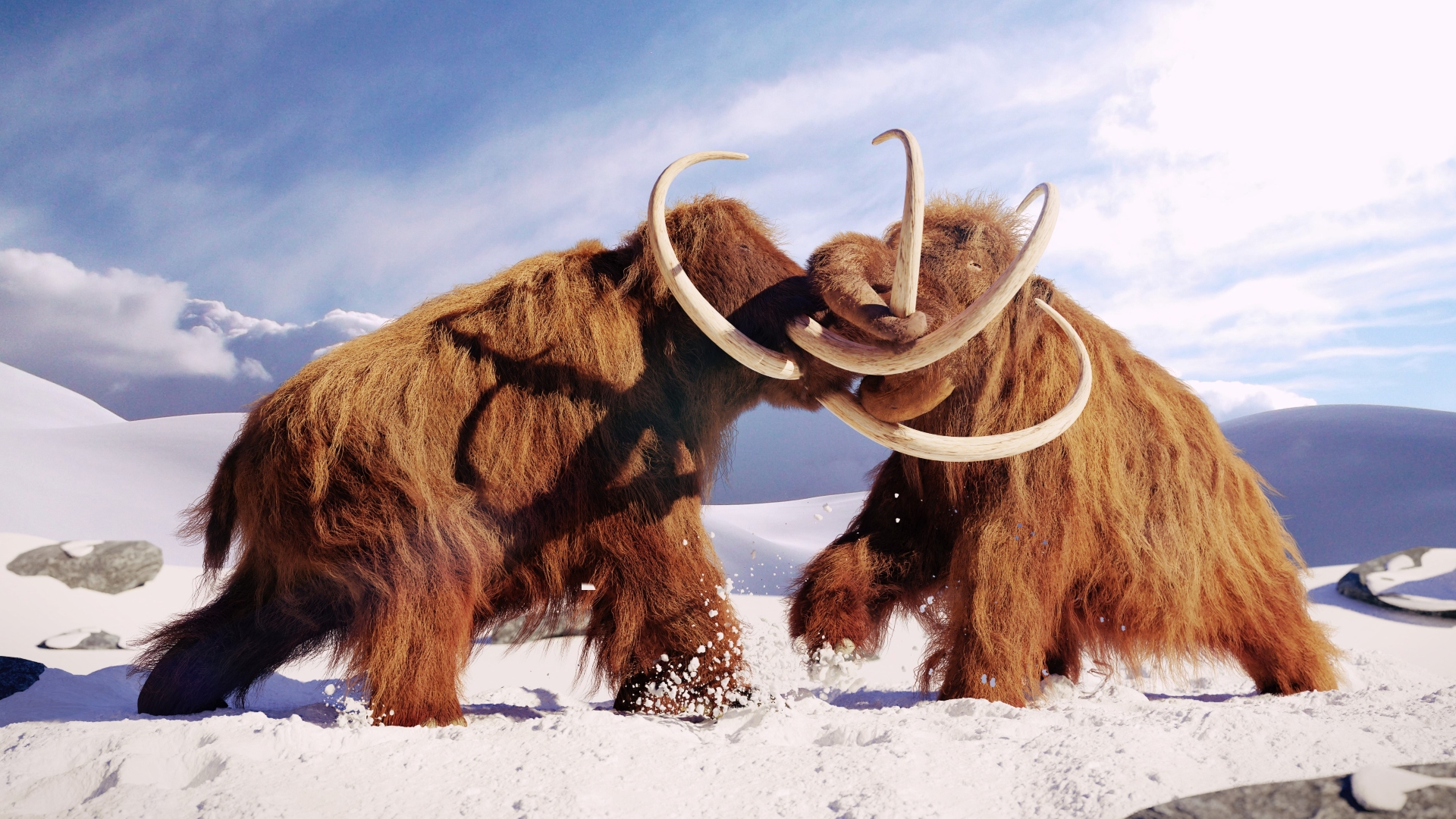
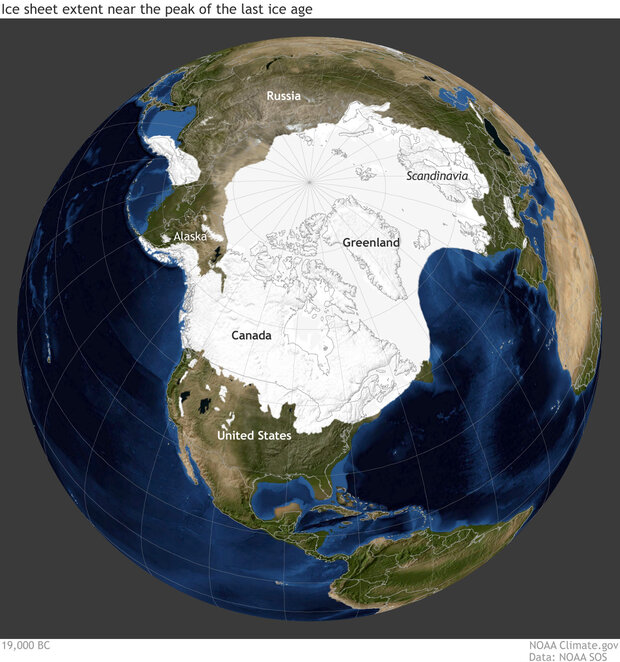
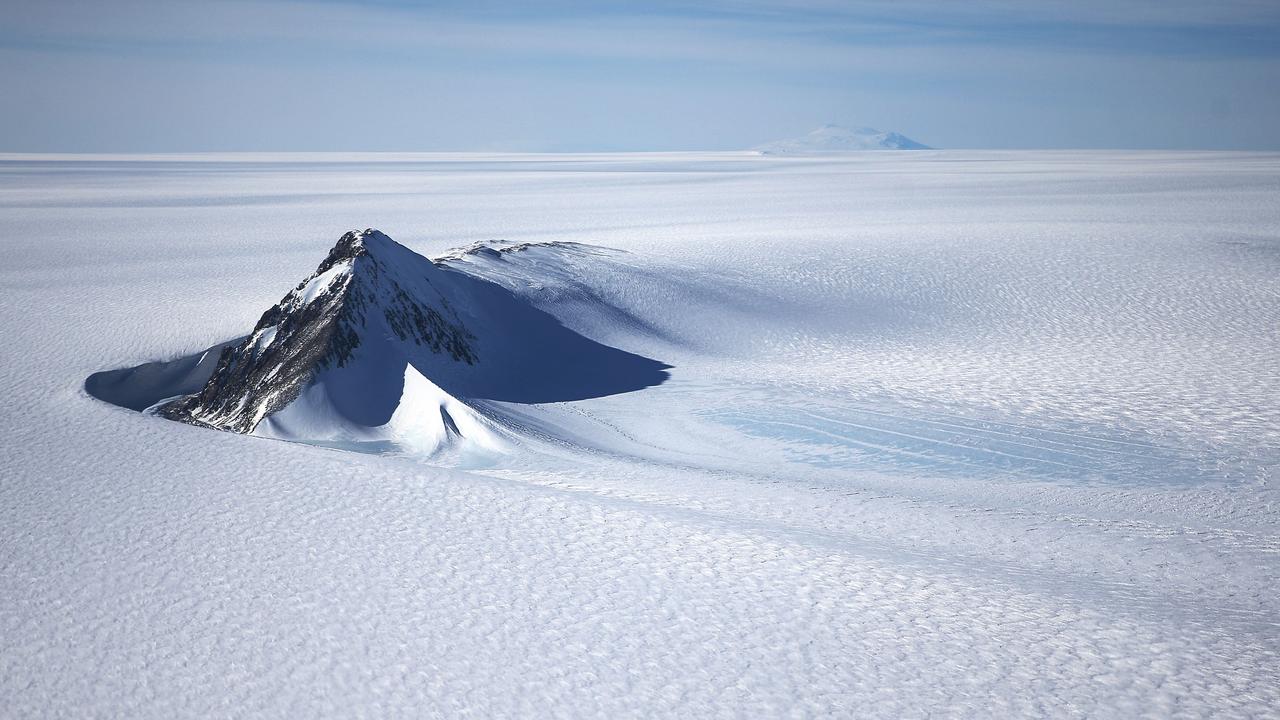
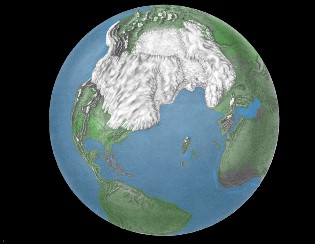

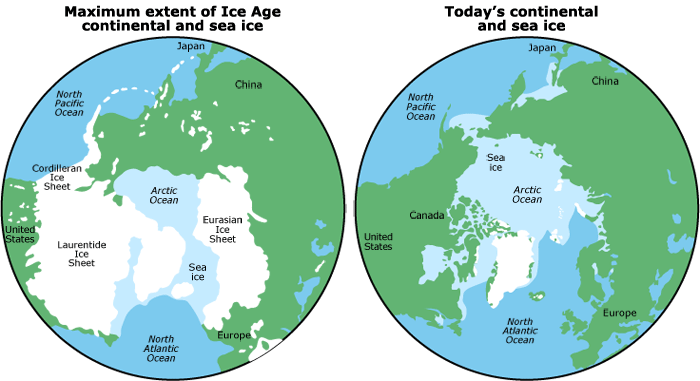
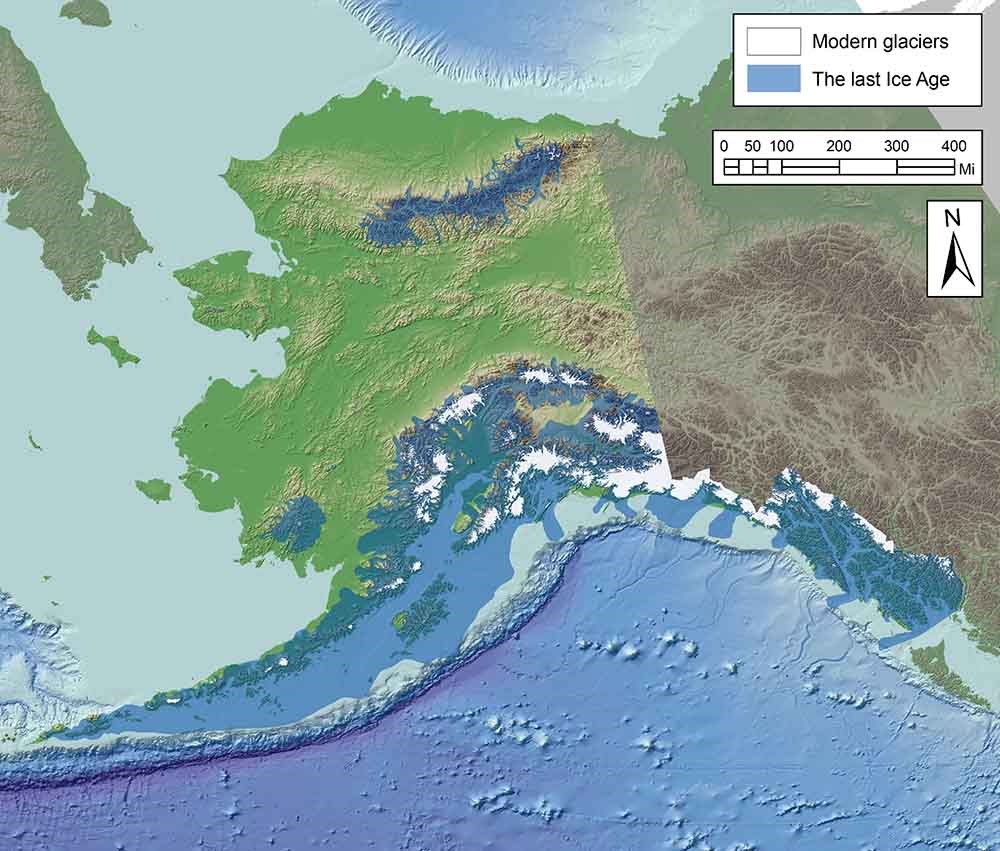
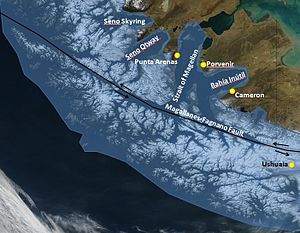
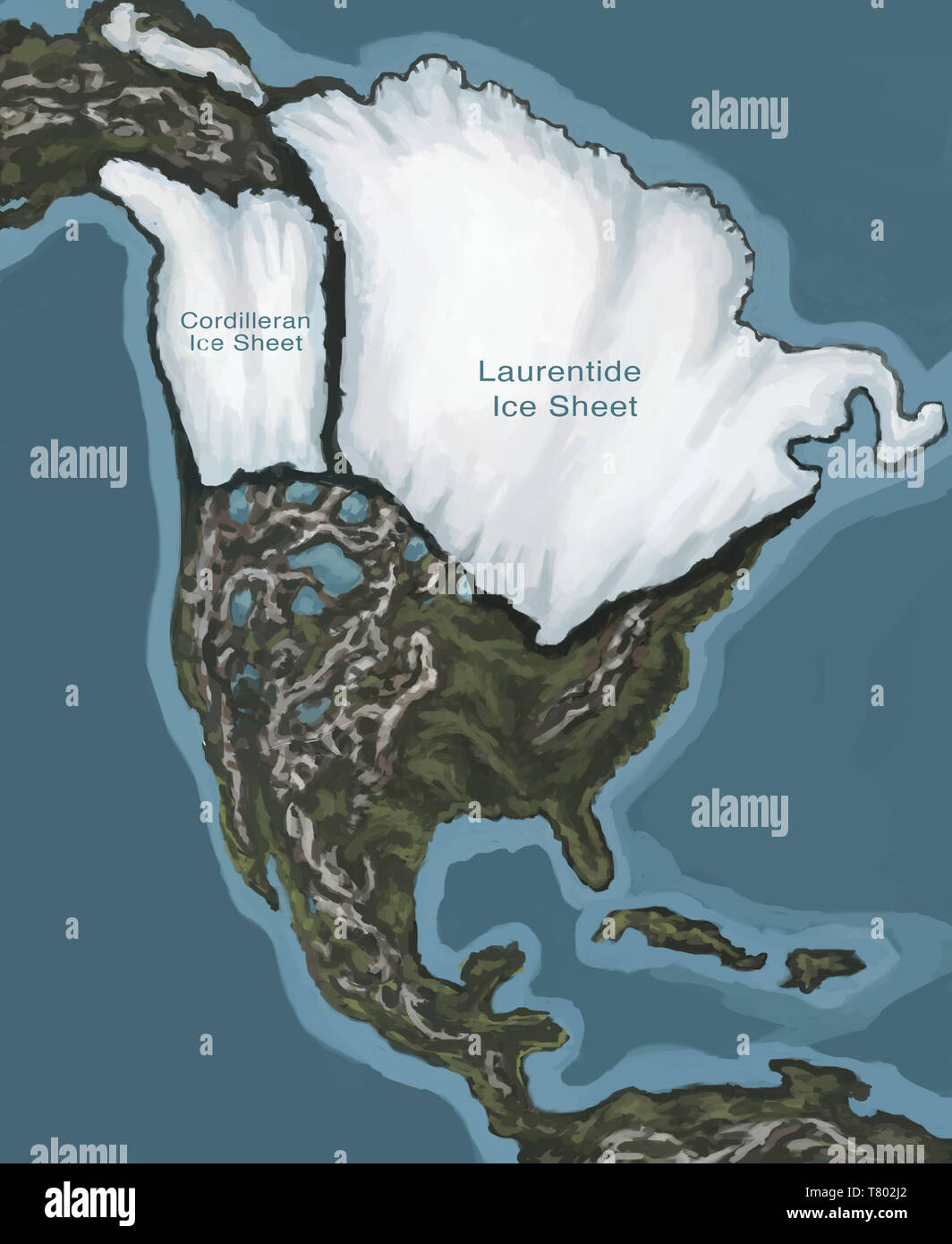





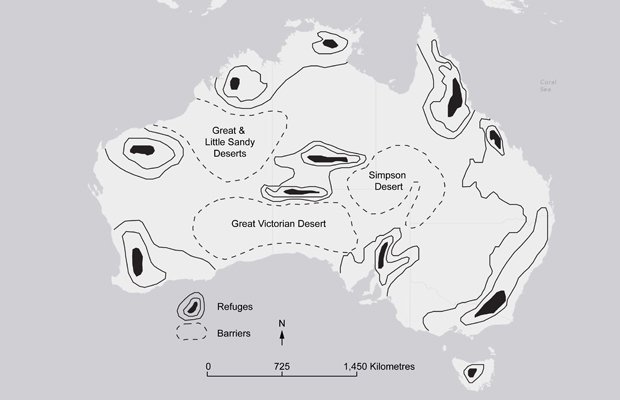


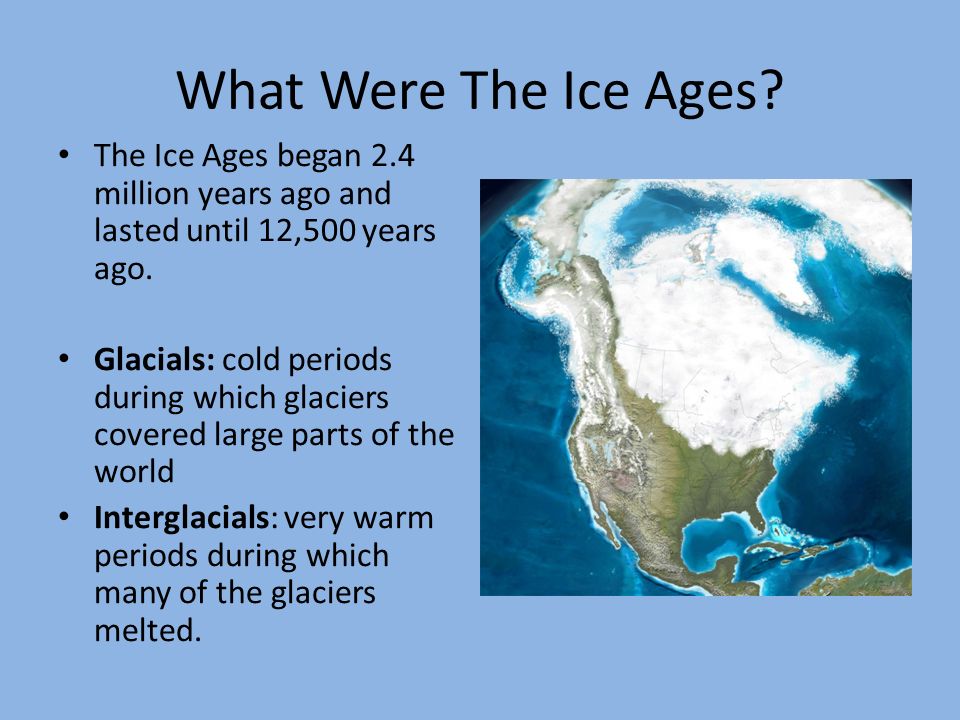



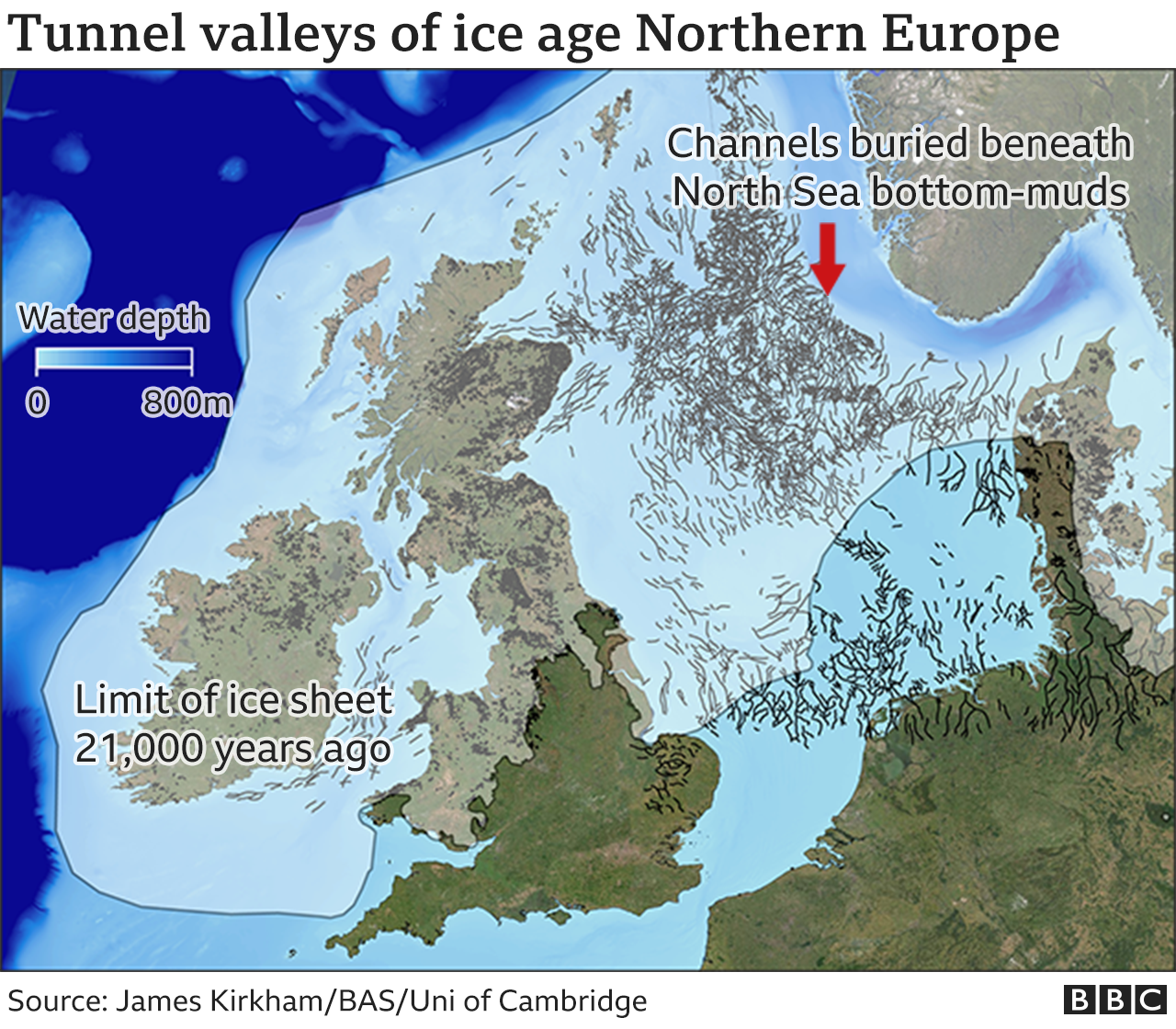







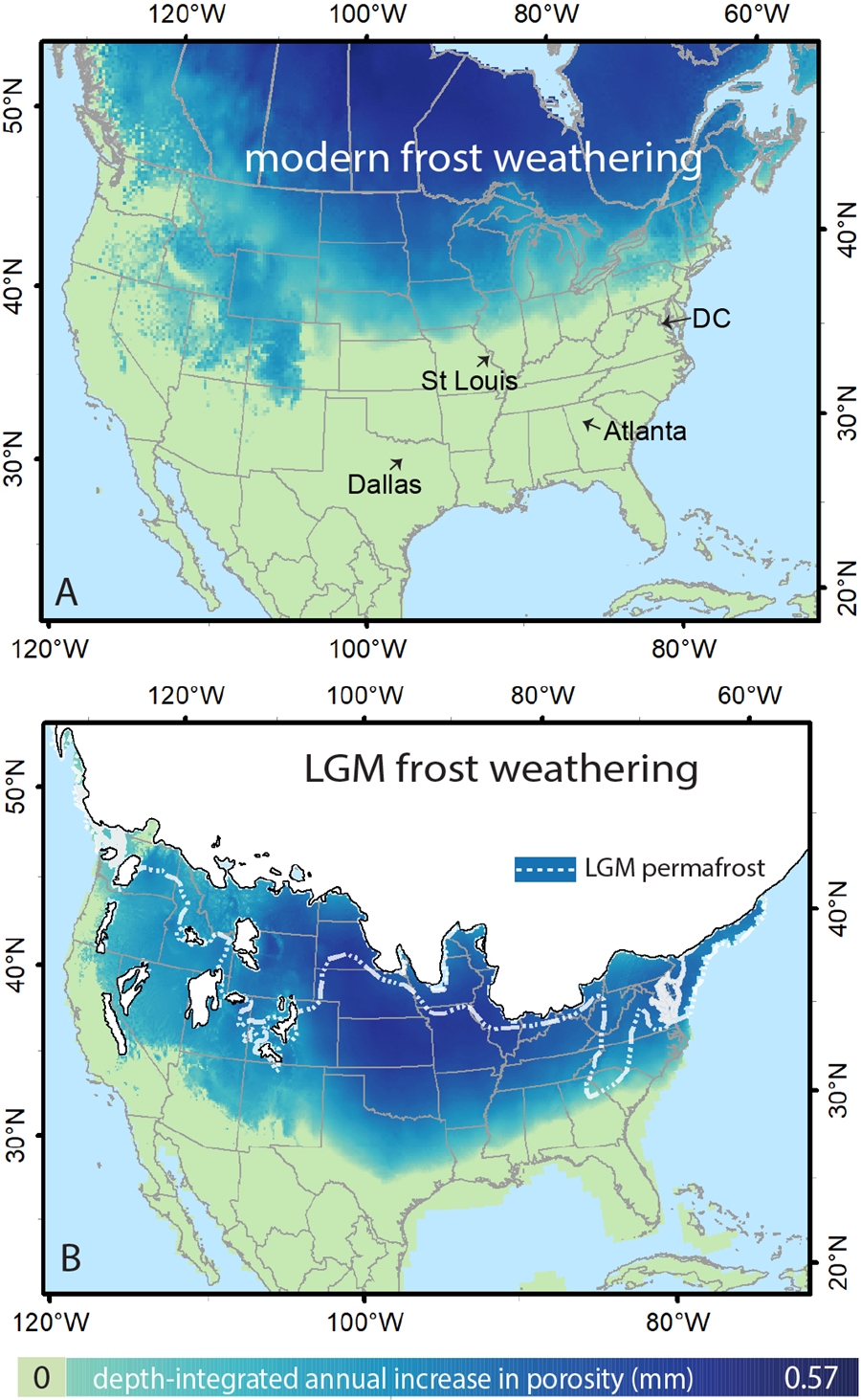

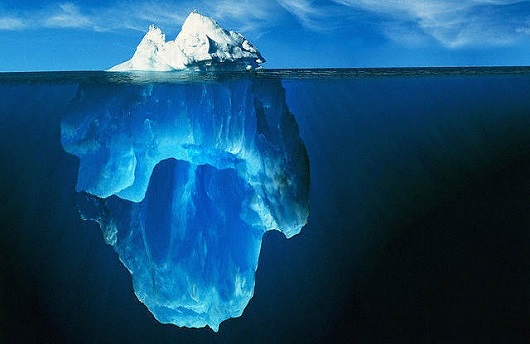
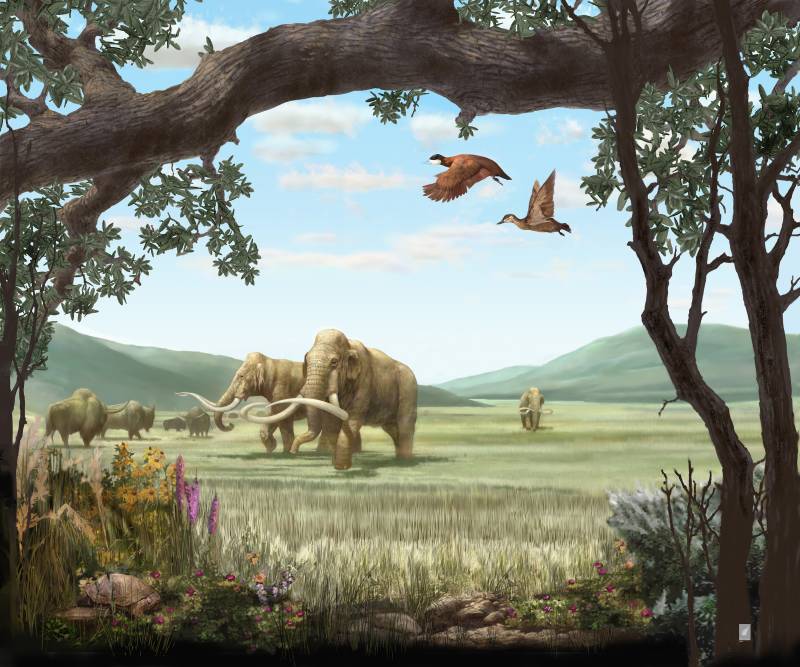

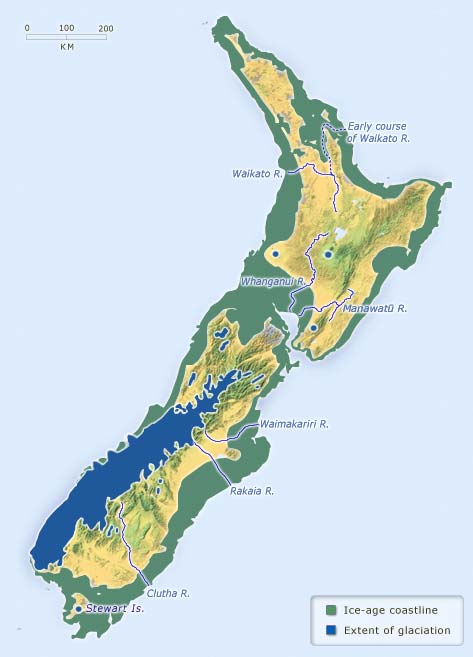
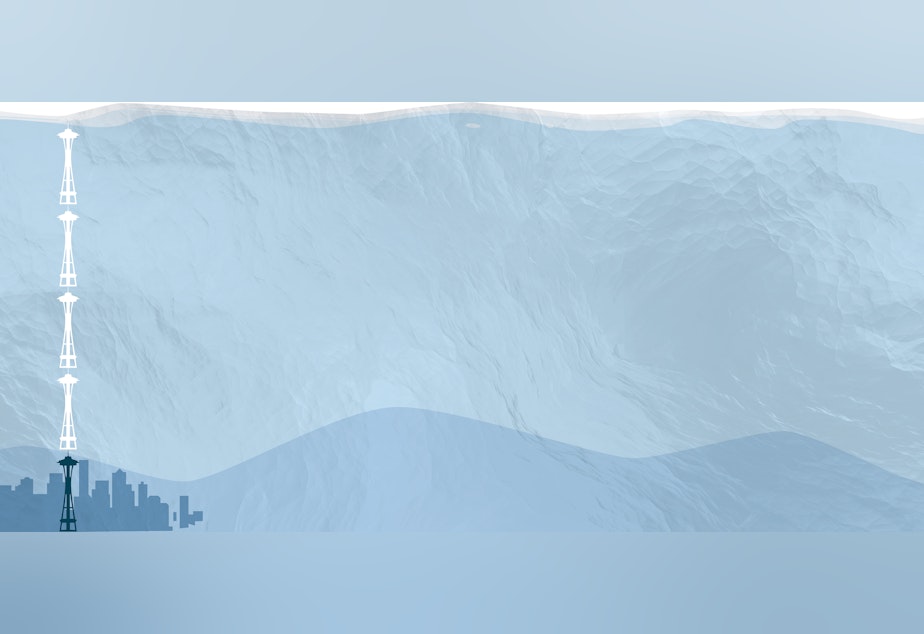


0 Response to "43 when was the last ice age"
Post a Comment